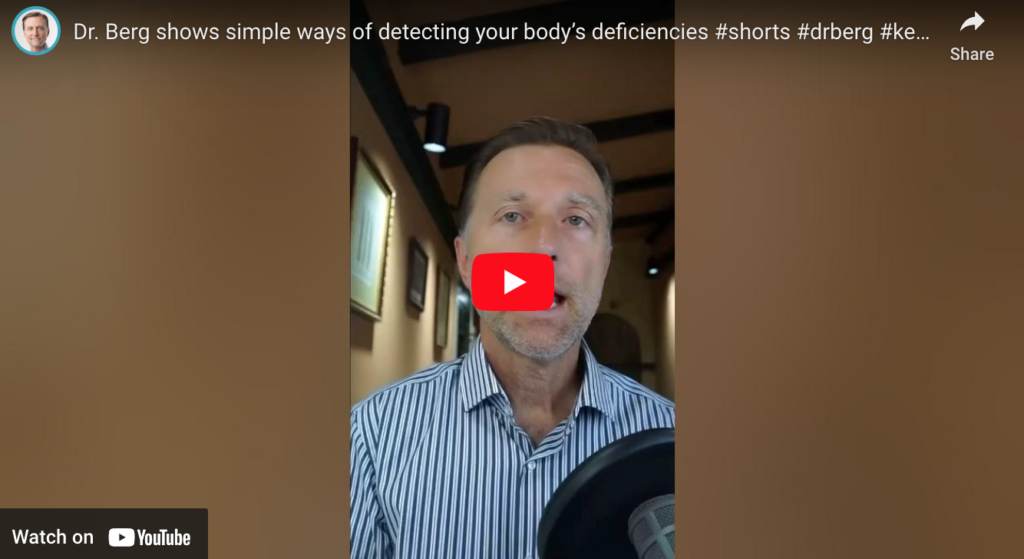I’m deficient in B2 and Calcium, how about you?
from CityWomen.co
Detecting Your Body’s Deficiencies: Insights from Dr. Berg
Are you curious about your body’s nutritional status and how to detect deficiencies effectively? Renowned health expert Dr. Berg shares valuable insights and simple methods to assess your body’s nutritional needs. In this quick guide, we’ll explore Dr. Berg’s recommendations for identifying deficiencies and maintaining optimal health, especially for those following a ketogenic diet or intermittent fasting regimen.
ADVERTISEMENT
ADVERTISEMENTKate Spade Autumn/Winter Sale |
1. Listen to Your Body:
Dr. Berg emphasizes the importance of listening to your body’s signals and paying attention to any signs of deficiency. Common symptoms of nutritional deficiencies may include fatigue, muscle weakness, hair loss, and digestive issues. By tuning in to your body’s cues, you can identify areas where you may need additional support.
2. Monitor Energy Levels:
ADVERTISEMENT
ADVERTISEMENTSports Direct Free Delivery on All Orders! |
Assess your energy levels throughout the day to gauge your body’s overall vitality. Are you experiencing frequent energy crashes or feelings of lethargy? These could be indicators of nutrient deficiencies, particularly in essential vitamins and minerals like B vitamins and magnesium.
3. Consider Dietary Patterns:
ADVERTISEMENT |
Evaluate your dietary habits and nutrient intake to identify potential gaps in your nutrition. Are you consuming a diverse range of whole foods, including plenty of fruits, vegetables, lean proteins, and healthy fats? A balanced diet is essential for meeting your body’s nutritional needs and preventing deficiencies.
4. Get Regular Blood Tests:
Consider scheduling regular blood tests to assess your vitamin and mineral levels accurately. Blood tests can provide valuable insights into your nutritional status and help identify any deficiencies that may require supplementation. Work with your healthcare provider to determine the most appropriate tests for your needs.
5. Listen to Your Cravings:
Pay attention to your food cravings, as they can offer clues about your body’s nutrient requirements. Cravings for specific foods, such as chocolate or salty snacks, may indicate deficiencies in certain nutrients like magnesium or sodium. Opt for nutrient-dense alternatives to satisfy cravings while supporting your overall health.
6. Seek Professional Guidance:
Consult with a qualified healthcare practitioner or nutritionist for personalized advice and guidance on addressing potential deficiencies. They can help you interpret test results, recommend appropriate supplements if needed, and develop a tailored nutrition plan to support your health goals.
ADVERTISEMENT

ADVERTISEMENT
Anya Hindmarch - I AM A PLASTIC BAGConclusion:
By adopting a proactive approach to monitoring your body’s nutritional status, you can ensure that you’re meeting your needs for optimal health and well-being. Incorporate Dr. Berg’s simple strategies into your routine to detect deficiencies early and take proactive steps to address them. Remember that maintaining a balanced diet, listening to your body’s signals, and seeking professional guidance are essential components of a holistic approach to health and nutrition.

ADVERTISEMENT
ADVERTISEMENTUp to 30% off Gift Sets |








